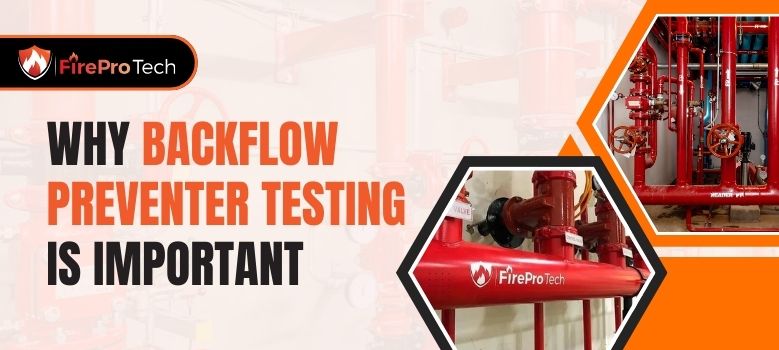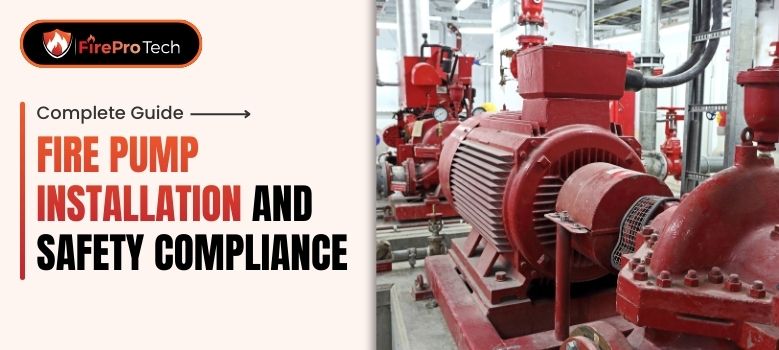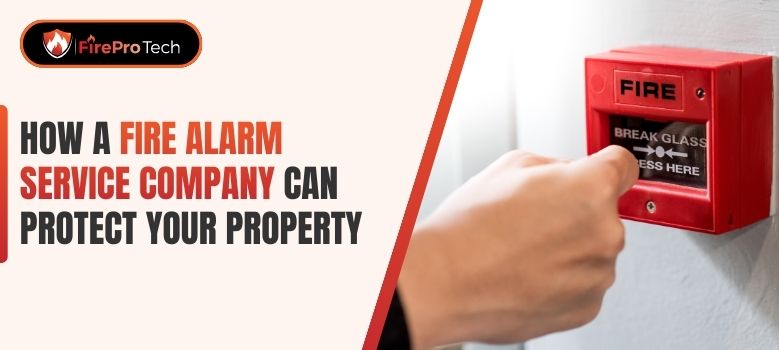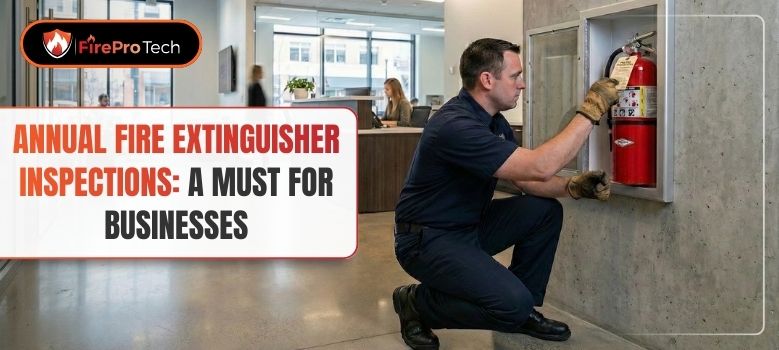
Backflow preventer testing is one of the most important procedures building owners must schedule to protect both safety and compliance. Every commercial or multi-unit residential property relies on clean water, and when backflow devices fail, that trust is put at risk. Contaminated water can travel backward into your system and enter the municipal supply, creating hazards for occupants and potentially the entire surrounding community.
Regulators understand the seriousness of this issue, which is why most jurisdictions legally require annual testing performed by certified professionals. For owners and facility managers, the process is not just about meeting a checklist—it is about protecting your property, avoiding legal penalties, and safeguarding lives. With proper scheduling and documentation, you can maintain confidence that your systems are compliant and your water supply is protected year after year.
Backflow occurs when water moves in the wrong direction inside a plumbing system. Instead of flowing toward faucets, sprinklers, or process equipment, it reverses and contaminates the clean water supply. This reversal often happens due to sudden changes in water pressure, such as main breaks, pump failures, or heavy hydrant use, which is why regular backflow preventer testing is so important.
Without a functioning backflow preventer in place, contaminated water can carry chemicals, bacteria, or other hazardous substances directly into the drinking water system. The health risks are significant, and the consequences for businesses that ignore testing requirements can be severe.
Schedule your backflow test and stay protected!
Backflow preventers are mechanical assemblies designed to stop this reversal. They are installed at key points where clean water connects to systems with potential contamination risks, such as irrigation lines, boilers, process equipment, or fire sprinkler systems. These devices use internal valves and checks to keep water moving in only one direction.
Over time, however, these assemblies can wear out, corrode, or clog with debris. Even a minor malfunction can compromise the safety of the entire system. That is why backflow preventer testing is not optional—it is essential.
Different types of properties require different approaches, but the most common installation areas include irrigation systems, fire sprinklers, and industrial or laboratory water supplies. Each of these carries its own risks:
Fertilizers, pesticides, and standing water in irrigation pipes can easily siphon back into the potable water supply if a device fails, making consistent backflow preventer testing essential for protection.
Chemical treatments used in boilers and chillers can contaminate drinking water lines without proper backflow protection.
Fire protection systems often use stagnant water that, if backfed, could introduce harmful contaminants into the municipal network.
Routine backflow preventer testing ensures these devices are still performing as designed. A certified professional uses calibrated gauges and follows regulatory protocols to measure whether each assembly can withstand pressure changes without leaking. This is more than just a mechanical check—it is a health and safety safeguard.
By maintaining compliance, property owners avoid penalties, keep tenants safe, and reduce liability exposure. Failure to meet these requirements can lead to costly fines, legal complications, or even suspension of water services. FirePro Tech, LLC helps building owners stay ahead of deadlines by managing testing schedules, repairs, and official documentation, ensuring no compliance issue is overlooked.
Backflow occurs when pressure within a plumbing system changes and water flows in the opposite direction from its intended path. Instead of supplying clean water to faucets, restrooms, or fire sprinklers, the system allows potentially contaminated water to move into the public supply. The consequences can affect not just your building but the wider community, which is why annual backflow preventer testing is legally required.
Back-siphonage happens when water pressure in the main supply drops suddenly. Events such as a municipal water main break or the heavy use of a fire hydrant can create suction within the pipes. That suction can pull pollutants from irrigation lines, boilers, or other connected systems into the drinking water network.
Backpressure occurs when pressure inside your building’s system exceeds the pressure of the municipal supply. This imbalance pushes contaminated water backward. Examples include pump systems without relief, elevated tanks, or closed-loop heating systems. These internal pressure changes can force water filled with chemicals or bacteria into the clean water supply if backflow preventer testing is not performed regularly.
Sudden shifts in demand, equipment malfunctions, and even seasonal usage patterns can cause backflow events. For example, landscaping systems drawing on fertilizer-treated irrigation lines may introduce contaminants during watering cycles. Similarly, fire sprinkler systems with stagnant water can become a serious hazard if their assemblies fail.
The health implications of contaminated water range from mild illness to severe outbreaks of waterborne disease. Beyond health, building owners face financial and legal consequences if contamination is traced back to their property. Fines, liability claims, and even forced water service suspension are all possible. This is why consistent backflow preventer testing is an essential safeguard against risk.
Stay compliant—book backflow testing today!
When scheduling backflow preventer testing, FirePro Tech, LLC ensures minimal disruption to your daily operations. Coordination includes verifying access points, planning water shutoffs, and preparing staff or tenants for any brief interruptions. Clear communication before the visit ensures the process runs smoothly.
Certified technicians arrive with calibrated gauges and specialized tools to test each backflow assembly. The testing process includes closing and opening valves in sequence, measuring pressure differences, and ensuring that check valves and relief valves function properly. Every action is guided by regulatory standards to guarantee accuracy.
If a device does not meet performance requirements during backflow preventer testing, corrective action is taken right away. FirePro Tech, LLC provides repairs or replacement services as needed, followed by retesting to confirm the device now passes. This ensures that compliance is restored before reports are submitted to local authorities.
Each completed test generates official records that verify compliance with municipal and state requirements. FirePro Tech, LLC handles the documentation from start to finish, providing both hard copy and digital records. These reports are filed with the proper agencies, protecting building owners from fines and ensuring inspection readiness.
While the testing process might sound straightforward, it requires expertise and precision. Certified professionals are trained to recognize subtle problems, prevent unnecessary damage, and ensure testing results hold up under inspection. Choosing FirePro Tech, LLC means building owners receive not just testing but full compliance support, protecting their investment and reducing liability.
Most building owners will eventually receive official notices from their local water utility regarding compliance requirements. These notifications are reminders that annual backflow preventer testing must be completed on time. Ignoring or delaying a test can trigger penalties, additional notices, or even disruptions to water service.
Beyond utility providers, fire marshals also play a key role in ensuring compliance. Building owners may receive two primary types of notifications. A 30-day notice serves as an initial warning that inspections or repairs must be scheduled promptly. If no action is taken, a past-due non-compliance notice is issued. At this stage, penalties become far more severe and can include fines of up to $2,000 per day or a complete suspension of water services.
Financial penalties are only part of the equation. Failure to complete scheduled backflow preventer testing or address deficiencies can impact insurance coverage, trigger legal liability, and even cause temporary building closures. Beyond fines, non-compliance can damage a property owner’s reputation and create long-term challenges with local authorities.
Accurate documentation is a critical part of compliance. Building owners must be able to produce official test reports, service records, and maintenance logs during audits or inspections. FirePro Tech, LLC simplifies this process by managing test forms, tagging devices after completion, and maintaining digital archives. This ensures every record is accessible, verifiable, and ready for inspection.
The best strategy for avoiding compliance issues is staying proactive. FirePro Tech, LLC not only provides backflow preventer testing but also sends reminders before deadlines, helping property managers avoid last-minute scrambles. By combining timely service with thorough recordkeeping, building owners remain compliant while focusing on their core operations.
The Devices You Rely On: RPZ, DCVA, PVB, and More
Not all backflow preventers are built the same. Each device type is designed for specific applications and hazards, and understanding these differences is key to proper protection. Backflow preventer testing ensures every device continues functioning according to its intended design, regardless of type or placement.
RPZ assemblies are among the most reliable devices for preventing contamination. They are designed with multiple check valves and a relief valve that discharges when pressure changes occur. These assemblies are commonly used where contamination risks are high, such as in chemical applications or medical facilities. Because RPZ devices handle critical functions, consistent testing and maintenance are essential to verify proper relief valve performance.
DCVA devices feature two independent check valves that create a redundant line of defense. They are frequently installed in systems with lower levels of hazard, such as standard commercial water supplies or fire sprinkler systems without chemical additives. While less complex than RPZ units, these devices still require annual backflow preventer testing to confirm both valves are sealing properly.
PVB devices are commonly used in irrigation systems, where fertilizers and pesticides present contamination risks. These units protect against back-siphonage by venting air into the system if a vacuum is detected. Seasonal weather changes, debris buildup, and freeze damage can all impact PVB performance, which is why testing is crucial before irrigation systems are activated each year.
Each device type is installed based on system requirements and potential hazards. Irrigation systems, boilers, and sprinkler lines all present unique risks that require different forms of protection. By performing comprehensive backflow preventer testing across all assemblies in a building, FirePro Tech, LLC ensures no system is left vulnerable.
Even with regular maintenance, devices eventually wear out. Seals degrade, springs lose tension, and valves corrode. A key advantage of professional testing is knowing whether a device can be repaired cost-effectively or if full replacement is necessary. FirePro Tech, LLC provides expert guidance on when to replace aging equipment and how to integrate new devices with existing infrastructure.
For most properties, backflow preventer testing is a straightforward process that takes between 20 minutes and one hour per device. The time required depends on the type of assembly, how accessible it is, and whether multiple devices are being tested in the same building. Larger facilities with many systems may take longer, but the process is designed to be efficient without sacrificing accuracy.
During backflow preventer testing, water to the device is temporarily shut off. This may create a short disruption for the connected system, whether that is an irrigation line, a boiler, or a fire sprinkler connection. In most cases, interruptions are brief and scheduled during off-peak times to minimize inconvenience for tenants or staff. FirePro Tech, LLC works with property managers to plan these pauses in a way that avoids operational downtime.
Safety is a critical part of every test. Certified technicians follow protocols to prevent accidental water release, damage to plumbing, or exposure to contaminants. Specialized tools such as differential pressure gauges are used with precision, and devices are handled carefully to ensure reliable results without creating new risks.
To perform backflow preventer testing effectively, technicians require clear access to each assembly. This often means ensuring storage areas, mechanical rooms, or exterior enclosures are unlocked and unobstructed. When property owners prepare in advance, testing can be completed more smoothly, saving both time and cost.
Once the test is completed, results are explained to the building owner or facility manager. If a device passes, it is tagged and logged with the date of service. If deficiencies are found, recommendations are provided immediately. FirePro Tech, LLC not only explains the results but also outlines repair options, cost expectations, and the timeline for retesting, so owners always know the exact status of their compliance.
Annual service is the standard, but some circumstances call for earlier backflow preventer testing. Warning signs such as discolored water, unusual odors, or sudden drops in water pressure should never be ignored. These can indicate a device is malfunctioning and allowing contaminants into the system. Immediate testing in these cases can prevent serious health risks and property damage.
Any time plumbing work is performed on a building’s main service line or connected systems, the potential for cross-connection risks increases. Repairs, renovations, or new equipment installations can all alter water flow conditions. Testing immediately after such work ensures that backflow preventers are still functioning properly under the new system configuration.
Outdoor irrigation systems often face seasonal challenges, especially in climates where freezing temperatures can damage equipment. When spring arrives and irrigation lines are activated, a round of backflow preventer testing confirms that pressure vacuum breakers and other devices are working correctly. This is particularly important since fertilizers and pesticides are commonly used during lawn and landscape care.
Periods of unusually high water use, such as during construction or large events, can create pressure imbalances within a system. These changes may stress backflow assemblies in ways not seen under normal conditions. Backflow preventer testing after such events ensures that protective devices are still sealing properly and preventing contamination.
While regulations typically require testing once per year, forward-thinking building owners treat this as the minimum rather than the limit. Proactive testing demonstrates a commitment to safety, avoids emergency shutdowns, and builds trust with tenants and inspectors. FirePro Tech, LLC helps clients create testing schedules tailored to their property needs, balancing compliance with practical protection.
The cost of backflow preventer testing varies depending on several factors. Device type, system complexity, and overall accessibility play significant roles. Assemblies located in tight spaces or mechanical rooms may require more time and specialized handling. Larger devices, such as those connected to fire sprinkler systems, can also require additional labor and equipment.
Property managers overseeing campuses or multiple sites often face the challenge of testing dozens of assemblies. Coordinating these tests strategically helps reduce costs. Scheduling all devices for the same testing period allows FirePro Tech, LLC to minimize labor hours and streamline reporting across multiple buildings.
Even with regular service, some devices eventually fail backflow preventer testing. Repair costs can vary depending on the availability of replacement parts and the severity of wear. Budgeting should always include an allowance for potential repairs or even full replacements. By factoring these costs into yearly planning, building owners avoid unexpected expenses that disrupt financial stability.
Waiting until a deadline notice arrives creates unnecessary risk. By setting testing schedules well in advance, owners avoid late fees, emergency callouts, and compliance violations. FirePro Tech, LLC offers automated reminders and recurring scheduling options so that testing becomes a predictable part of facility management rather than a reactive burden.
Fire sprinkler systems are designed to protect lives and property during emergencies, but they also present contamination risks. The stagnant water inside sprinkler piping can introduce harmful substances into the municipal supply if a device fails. Backflow preventer testing ensures that the assemblies tied to these systems function properly and meet fire code requirements.
Commercial kitchens often include suppression systems that use chemicals or foams. These systems require water connections that must be protected with dedicated backflow devices. Regular testing ensures those devices are still capable of preventing chemical backflow into potable lines.
Laboratories, industrial facilities, and manufacturing plants use water systems connected to equipment with chemical or biological materials. Any backflow here could be catastrophic. Comprehensive backflow preventer testing confirms these higher-risk connections remain isolated and secure, protecting both the building and the broader community.
Since many buildings require regular fire protection and safety inspections, combining backflow testing with these services is a cost-effective approach. FirePro Tech, LLC integrates backflow preventer testing with fire alarms, sprinkler inspections, and suppression system checks to reduce downtime. This approach minimizes disruptions, ensures full compliance across all systems, and creates a streamlined inspection process.
Backflow preventer testing must be performed by certified professionals with the right training and equipment. FirePro Tech, LLC employs skilled technicians who are fully licensed and experienced in handling every type of backflow prevention assembly. Their expertise ensures that tests are accurate, efficient, and compliant with regulatory standards.
Testing is only one part of the process. FirePro Tech, LLC goes beyond the test itself by filing documentation with local authorities, tagging devices, and maintaining digital archives for property managers. Building owners no longer need to worry about missing paperwork or failing an audit, as every compliance detail is handled from start to finish.
Unexpected costs are a concern for any building owner. FirePro Tech, LLC offers clear pricing structures, detailed estimates, and honest communication about repair needs. Clients know exactly what to expect before work begins, making financial planning easier and avoiding unwelcome surprises during backflow preventer testing or repair services.
The risk of missing a testing deadline is eliminated through reminder systems and scheduled service plans. FirePro Tech, LLC ensures that every property under its care remains compliant year after year. Ongoing support, combined with timely reporting and professional oversight, makes the company a trusted partner in long-term building management.
FirePro Tech, LLC has built its reputation on reliability, safety, and regulatory expertise. When building owners choose this provider, they are choosing peace of mind. From single-device checks to large-scale compliance programs, the company delivers the same high level of professionalism that keeps water safe and buildings fully compliant.
Every building owner carries the responsibility of keeping water safe and systems compliant. Backflow preventer testing is not only a regulatory requirement but also a vital measure to protect occupants, employees, and the surrounding community. By ensuring that devices are regularly inspected and maintained, the risk of contamination is minimized, and liability is reduced.
Testing requires trained technicians who understand how to use calibrated equipment, recognize potential failures, and file proper documentation. With expert support from FirePro Tech, LLC, property managers can remain confident that every device is operating correctly and that compliance is never left to chance.
By staying proactive, scheduling early, and trusting a qualified provider, building owners can eliminate the stress of last-minute deadlines and avoid costly penalties. With FirePro Tech, LLC managing the process from start to finish, backflow preventer testing becomes a seamless part of property management, ensuring safety, compliance, and peace of mind.
Most jurisdictions require backflow preventer testing at least once per year. This frequency ensures that devices continue to operate correctly despite wear, debris buildup, or environmental conditions. In some cases, such as after plumbing modifications or irrigation start-ups, additional testing may be recommended. FirePro Tech, LLC helps owners stay compliant by creating proactive schedules that prevent overlooked deadlines.
Only certified professionals with proper licensing are permitted to conduct backflow preventer testing. These technicians are trained to use specialized equipment and follow regulatory standards that guarantee accurate results. Choosing a certified provider such as FirePro Tech, LLC ensures the test is valid, legally recognized, and thoroughly documented for compliance.
During testing, a technician uses calibrated gauges to measure pressure across the device while manipulating its valves in sequence. This confirms whether check valves and relief valves are operating correctly. If issues are detected, immediate repairs or replacements may be recommended. FirePro Tech, LLC provides complete service, from the physical test to final documentation submitted to local authorities.
The cost depends on factors such as device type, size, accessibility, and overall system complexity. Larger or hard-to-access assemblies may require more time and resources. FirePro Tech, LLC provides transparent pricing, detailed estimates, and bundled service plans for multiple devices, helping property owners budget effectively and avoid unexpected expenses.
If a device fails, it no longer provides adequate protection against contamination. In this case, repairs or full replacement may be necessary. Once corrective action is taken, the assembly must be retested to confirm compliance. FirePro Tech, LLC handles repairs and retesting seamlessly, ensuring the system is restored quickly and regulatory requirements are met.
Yes, most local and state regulations mandate annual testing of backflow prevention assemblies. This requirement exists because even a single failure can threaten public water safety. Compliance is enforced by both utility providers and fire marshals, with penalties for neglect ranging from fines to water service suspension. FirePro Tech, LLC ensures clients never fall behind on these legal obligations.
The time required varies, but most devices can be tested in 20 minutes to one hour. Larger facilities or systems with many assemblies may require more time. FirePro Tech, LLC works efficiently to minimize water interruptions and provides results immediately after the test. By planning access in advance, building owners help ensure smooth and timely service.

Fire pump installation is essential to effective fire protection in Houston, providing the water pressure...

Every property owner recognizes that safety, especially fire safety, is a top priority. Fires can...

Fire safety remains a top concern for businesses in Houston and its neighboring areas, especially...